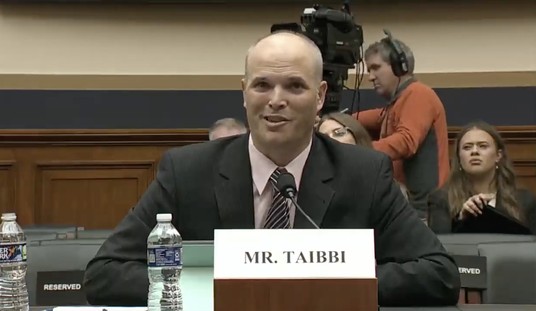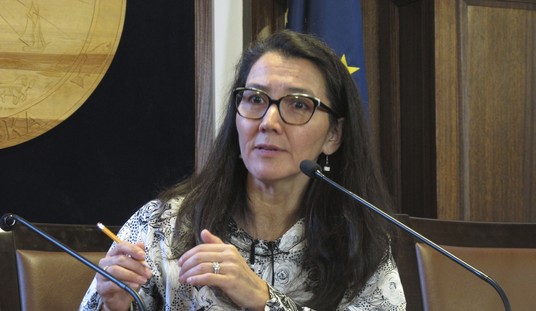In a bold move that underscores the power of American ingenuity and free-market ambition, Amazon is set to launch over two dozen satellites into orbit this month as part of its Project Kuiper. The mission, dubbed "KA-01" (Kuiper Atlas 1), will take off from Cape Canaveral Space Force Station in Florida aboard a United Launch Alliance (ULA) Atlas V rocket. Scheduled for no earlier than April 9 at 12 p.m. EDT, the launch will be live-streamed, offering a front-row seat to a venture that promises to bring high-speed internet to customers across the globe. For conservatives who champion private enterprise and technological progress, this is a moment to celebrate—and a reminder of what’s possible when government steps aside and lets innovators lead.
United Launch Alliance is readying the formidable #AtlasV 551 rocket to deliver the first production satellites into space for #Amazon's #ProjectKuiper.
— ULA (@ulalaunch) April 2, 2025
Learn more about #Kuiper1 preparations in our preview blog: https://t.co/PGsfKDZlSZ pic.twitter.com/CxXh8obhIN
The KA-01 mission will deploy 27 satellites into an initial orbit 280 miles above Earth, traveling at a blistering 17,000 miles per hour and circling the planet every 90 minutes. From there, these advanced machines will use electric propulsion to climb to their final orbit at 392 miles, where they’ll begin beaming internet service back to Earth. Amazon’s goal? To deliver fast, reliable, low-latency internet to nearly any location on the planet—a feat that could bridge the digital divide and empower rural communities often overlooked by bloated government programs.
This isn’t just a one-off stunt. Project Kuiper is a massive undertaking, with plans for over 3,200 low-Earth orbit satellites and more than 80 launches already in the pipeline. The company expects to start serving customers by the end of 2025, a timeline that reflects the kind of efficiency and determination conservatives admire in the private sector. Compare that to the sluggish pace of federal infrastructure projects, and it’s clear who’s better equipped to tackle big challenges.
Exciting news! We're expanding at Kennedy Space Center in Florida with a $19.5M investment, bringing our total to nearly $140M. This new facility will help us deploy our 3,232-satellite constellation & create more jobs! Explore roles: https://t.co/DAl7ZERRI7#ProjectKuiper pic.twitter.com/b5EttTU6Da
— Project Kuiper (@ProjectKuiper) August 22, 2024
From a reasonable perspective, Amazon’s push into space is a textbook example of why we should trust markets over mandates. The company isn’t waiting for taxpayer handouts or bureaucratic approval to solve a real-world problem—it’s investing its own resources, taking risks, and betting on the payoff. Rajeev Badyal, vice president of Project Kuiper, emphasized this ethos in a recent statement: “Every launch is an opportunity to add more capacity and coverage to our network… This is just the start of our journey.” That’s the spirit of capitalism at work—relentless, forward-thinking, and unapologetic.
The satellites themselves are a marvel of engineering, boasting upgrades over the prototypes Amazon tested in 2023. With improved phased array antennas, processors, solar arrays, propulsion systems, and even optical inter-satellite links, these aren’t your granddaddy’s satellites. They’re coated in a reflective film to minimize visibility from Earth, showing a nod to stewardship alongside innovation. And the scale of the operation is staggering: seven more Atlas V launches, 38 on ULA’s Vulcan Centaur rocket, and 30 additional liftoffs with partners like Arianespace, Blue Origin, and SpaceX. This isn’t just a project—it’s a full-on space race, driven by private players competing to outdo each other.
Of course, some might raise eyebrows at Amazon’s growing reach. A company this big, with its hands in retail, cloud computing, and now global internet, can feel like a monopoly in the making. People aren’t blind to the risks of unchecked corporate power—after all, we’re the ones who’ve long warned against cronyism and overreach. But the answer isn’t more regulation or government meddling; it’s competition. Amazon’s not alone in this game—SpaceX’s Starlink is already in orbit, proving that the market can police itself when innovators are free to duke it out. The result? Better services, lower costs, and more choices for consumers.
There’s also a national security angle worth noting. A robust satellite network under American control strengthens our position against adversaries like China, who are racing to dominate space and cyberspace. While the federal government dithers, companies like Amazon are stepping up, ensuring the U.S. stays ahead in the tech arms race. That’s a win for liberty and sovereignty, no question about it.
As the KA-01 launch approaches, conservatives should see it as more than just a corporate milestone. It’s a testament to what happens when you unleash human potential and let the free market work its magic. Tune in to the livestream from Cape Canaveral, and watch a private company do what government never could—connect the world, one satellite at a time.
Editor's Note: Every single day, here at RedState, we will stand up and FIGHT, FIGHT, FIGHT against the radical left and deliver the conservative reporting our readers deserve.
Help us continue to tell the truth about the Trump administration and its major wins. Join RedState VIP and use promo code FIGHT to get 60% off your membership.














Join the conversation as a VIP Member